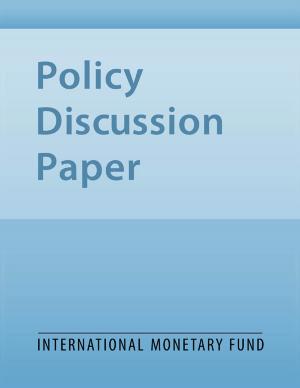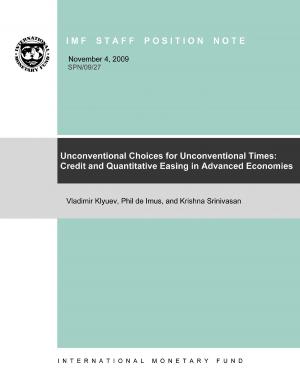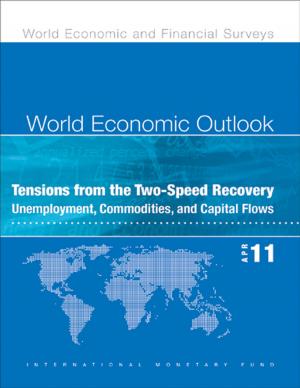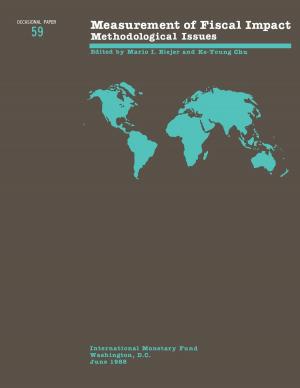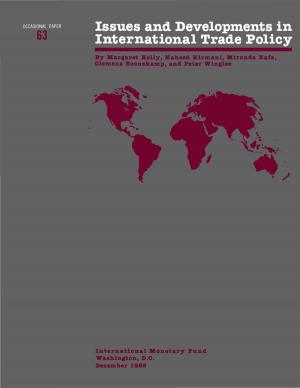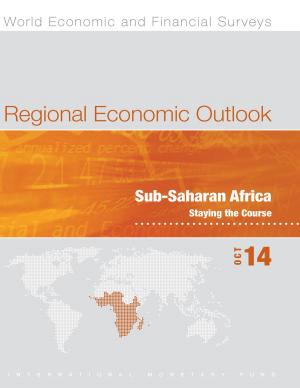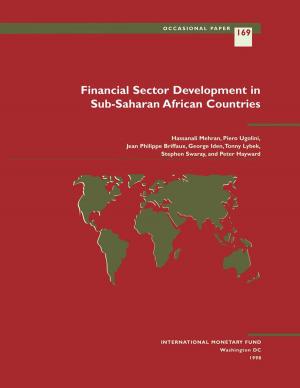Women in Finance: A Case for Closing Gaps
Business & Finance, Economics, Money & Monetary Policy, Macroeconomics| Author: | Ratna Sahay, Martin Cihak | ISBN: | 9781484377208 |
| Publisher: | INTERNATIONAL MONETARY FUND | Publication: | September 17, 2018 |
| Imprint: | Language: | English |
| Author: | Ratna Sahay, Martin Cihak |
| ISBN: | 9781484377208 |
| Publisher: | INTERNATIONAL MONETARY FUND |
| Publication: | September 17, 2018 |
| Imprint: | |
| Language: | English |
Women are underrepresented at all levels of the global financial system, from depositors and borrowers to bank board members and regulators. A new study at the IMF finds that greater inclusion of women as users, providers, and regulators of financial services would have benefits beyond addressing gender inequality. Narrowing the gender gap would foster greater stability in the banking system and enhance economic growth. It could also contribute to more effective monetary and fiscal policy. New evidence suggests that greater access for women to and use of accounts for financial transactions, savings, and insurance can have both economic and societal benefits. For example, women merchants who opened a basic bank account tend to invest more in their businesses, while female-headed households often spend more on education after opening a savings account. More inclusive financial systems in turn can magnify the effectiveness of fiscal and monetary policies by broadening financial markets and the tax base. The paper also studies the large gaps between the representation of men and women in leadership positions in banks and in banking-supervision agencies worldwide. It finds that, shockingly, women accounted for less than 2 percent of financial institutions’ chief executive officers and less than 20 percent of executive board members. The analysis suggests that, controlling for relevant bank- and country-specific factors, the presence of women as well as a higher share of women on bank boards appears associated with greater financial resilience. This study also finds that a higher share of women on boards of banking-supervision agencies is associated with greater bank stability. This evidence strengthens the case for closing the gender gaps in leadership positions in finance.
Women are underrepresented at all levels of the global financial system, from depositors and borrowers to bank board members and regulators. A new study at the IMF finds that greater inclusion of women as users, providers, and regulators of financial services would have benefits beyond addressing gender inequality. Narrowing the gender gap would foster greater stability in the banking system and enhance economic growth. It could also contribute to more effective monetary and fiscal policy. New evidence suggests that greater access for women to and use of accounts for financial transactions, savings, and insurance can have both economic and societal benefits. For example, women merchants who opened a basic bank account tend to invest more in their businesses, while female-headed households often spend more on education after opening a savings account. More inclusive financial systems in turn can magnify the effectiveness of fiscal and monetary policies by broadening financial markets and the tax base. The paper also studies the large gaps between the representation of men and women in leadership positions in banks and in banking-supervision agencies worldwide. It finds that, shockingly, women accounted for less than 2 percent of financial institutions’ chief executive officers and less than 20 percent of executive board members. The analysis suggests that, controlling for relevant bank- and country-specific factors, the presence of women as well as a higher share of women on bank boards appears associated with greater financial resilience. This study also finds that a higher share of women on boards of banking-supervision agencies is associated with greater bank stability. This evidence strengthens the case for closing the gender gaps in leadership positions in finance.



